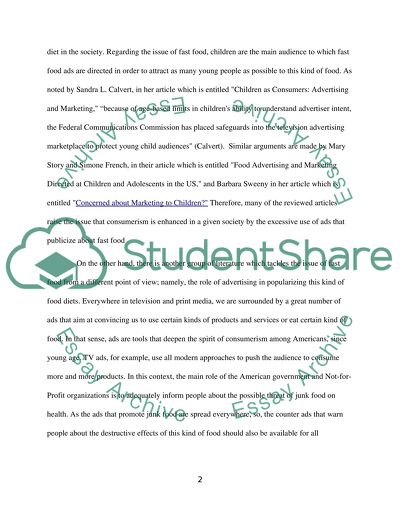Cite this document
(“Fast Food Nation Annotated Bibliography Example | Topics and Well Written Essays - 2500 words”, n.d.)
Retrieved de https://studentshare.org/social-science/1594594-fast-food-nation
Retrieved de https://studentshare.org/social-science/1594594-fast-food-nation
(Fast Food Nation Annotated Bibliography Example | Topics and Well Written Essays - 2500 Words)
https://studentshare.org/social-science/1594594-fast-food-nation.
https://studentshare.org/social-science/1594594-fast-food-nation.
“Fast Food Nation Annotated Bibliography Example | Topics and Well Written Essays - 2500 Words”, n.d. https://studentshare.org/social-science/1594594-fast-food-nation.


